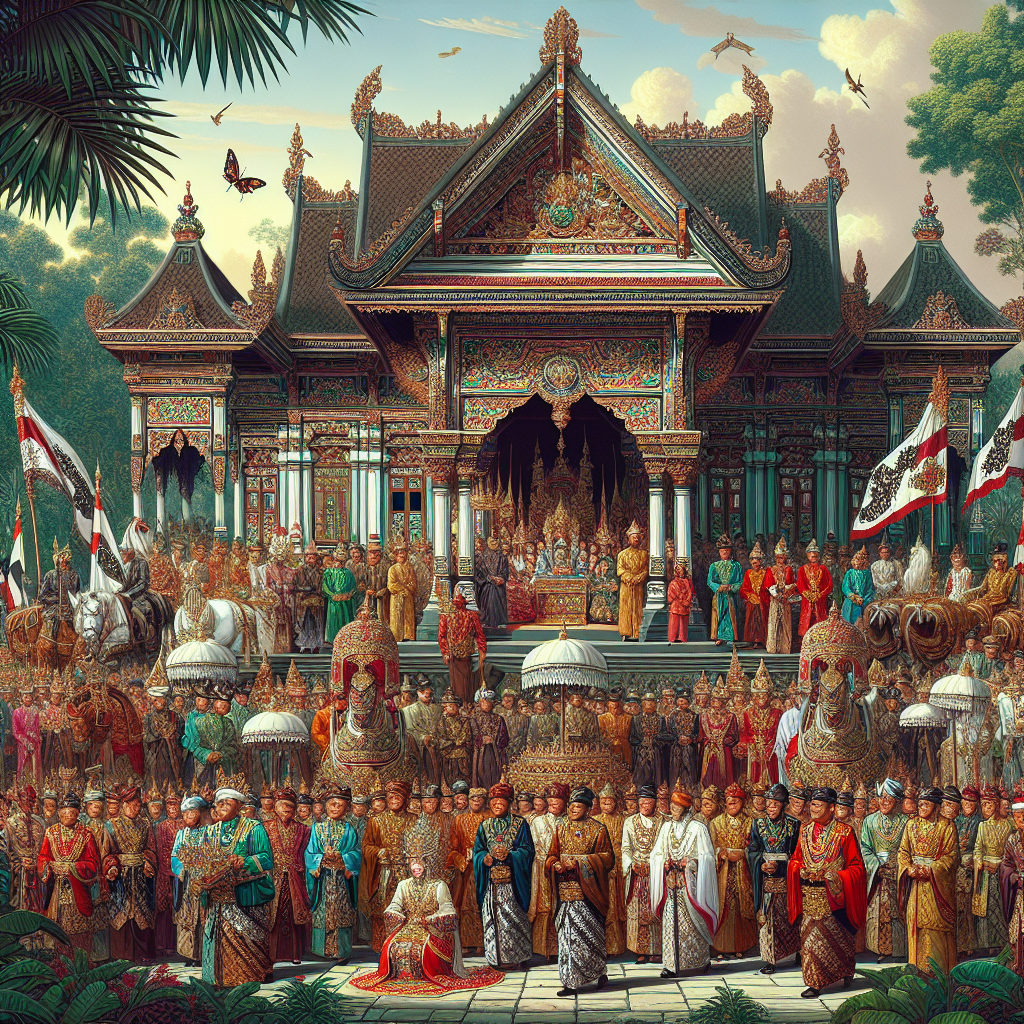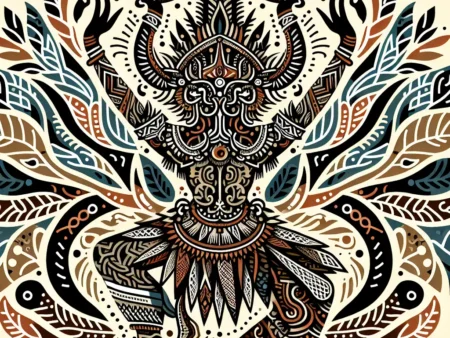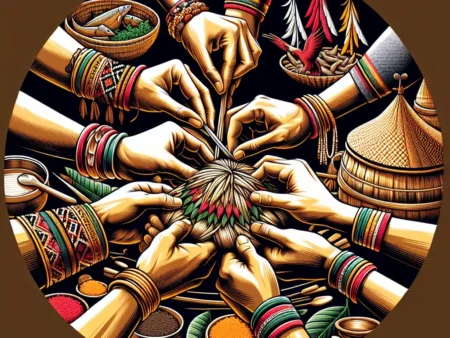Upacara Grebeg Maulud adalah tradisi kerajaan Jawa yang merayakan kelahiran Nabi Muhammad SAW melalui prosesi unik dan karnaval yang spektakuler.
Upacara Grebeg Maulud: Tradisi Kerajaan Jawa
-
Table of Contents
Upacara Grebeg Maulud: Tradisi Kerajaan Jawa

Introduction
Indonesia is a country rich in cultural diversity, with each region having its own unique traditions and customs. One such tradition is the Upacara Grebeg Maulud, a grand ceremony celebrated by the Javanese royal families. This article explores the significance, history, and cultural aspects of the Upacara Grebeg Maulud, shedding light on this fascinating tradition.
The Significance of Upacara Grebeg Maulud
The Upacara Grebeg Maulud is an annual event that takes place in Yogyakarta and Surakarta, two cities in Central Java, Indonesia. It is held to commemorate the birth of the Prophet Muhammad, who is highly revered by the Javanese people. The ceremony is a way for the royal families to express their devotion and gratitude to the Prophet, as well as to seek his blessings for the well-being of their kingdoms.
The word “Grebeg” in Javanese means “to collect” or “to gather,” while “Maulud” refers to the birth of the Prophet Muhammad. The ceremony involves a procession where various offerings are paraded through the streets, accompanied by traditional music and dance performances. It is a vibrant and colorful event that attracts both locals and tourists alike.
Historical Background
The Upacara Grebeg Maulud has a long history dating back to the 18th century. It was first introduced by Sultan Hamengkubuwono I, the founder of the Yogyakarta Sultanate, as a way to unite the Javanese people and strengthen their faith in Islam. The tradition was later adopted by the Surakarta Sunanate, another Javanese kingdom, and has been celebrated ever since.
During the colonial era, the Dutch attempted to suppress the Upacara Grebeg Maulud due to its association with Islam and the Javanese monarchy. However, the tradition managed to survive and has become an integral part of Javanese culture.
The Rituals and Procession
The Upacara Grebeg Maulud begins with a series of rituals performed by the royal families. These rituals include prayers, recitation of the Quran, and the offering of special prayers for the well-being of the kingdom. The royal family members dress in traditional Javanese attire and wear symbolic accessories to signify their status and authority.
After the rituals, the procession begins, with the royal family members leading the way. They carry various offerings, including fruits, flowers, and traditional Javanese dishes, on their heads. The offerings are beautifully arranged and decorated, showcasing the artistic skills of the Javanese people.
The procession is accompanied by traditional music and dance performances, adding to the festive atmosphere. Gamelan, a traditional Javanese ensemble, provides the musical accompaniment, while dancers perform traditional Javanese dances such as the Bedhaya and Srimpi. The combination of music, dance, and colorful costumes creates a mesmerizing spectacle for the spectators.
Cultural Significance
The Upacara Grebeg Maulud holds immense cultural significance for the Javanese people. It is not only a religious ceremony but also a way to preserve and showcase their rich cultural heritage. The event brings together people from different social backgrounds, fostering a sense of unity and community spirit.
The procession itself is a symbol of harmony and cooperation, as it involves the participation of various community groups, including religious leaders, government officials, and ordinary citizens. It serves as a reminder of the importance of collective effort in maintaining social harmony and prosperity.
Modern Adaptations and Challenges
Over the years, the Upacara Grebeg Maulud has undergone some modern adaptations to cater to the changing times. The event now includes additional activities such as art exhibitions, cultural performances, and traditional games, attracting a wider audience and promoting tourism in the region.
However, the tradition also faces some challenges in the modern era. The rapid urbanization and globalization have led to a decline in traditional values and practices. Younger generations are becoming less interested in participating in the Upacara Grebeg Maulud, preferring more modern forms of entertainment.
Efforts are being made to address these challenges and ensure the continuity of the tradition. Various cultural organizations and government bodies are working together to promote awareness and appreciation of the Upacara Grebeg Maulud among the younger generation. They organize workshops, seminars, and educational programs to educate people about the significance of the tradition and its role in preserving Javanese culture.
Conclusion
The Upacara Grebeg Maulud is a captivating tradition that showcases the rich cultural heritage of the Javanese people. It is a celebration of faith, unity, and community spirit, bringing together people from all walks of life. The colorful procession, accompanied by traditional music and dance performances, creates a vibrant and festive atmosphere.
While the tradition faces challenges in the modern era, efforts are being made to ensure its continuity and promote awareness among the younger generation. The Upacara Grebeg Maulud serves as a reminder of the importance of preserving cultural traditions and values, even in the face of rapid social and technological changes.
By celebrating the Upacara Grebeg Maulud, the Javanese people not only honor their religious beliefs but also pay homage to their ancestors and the rich history of their land. It is a testament to the resilience and cultural diversity of Indonesia, making it a truly unique and fascinating country.







